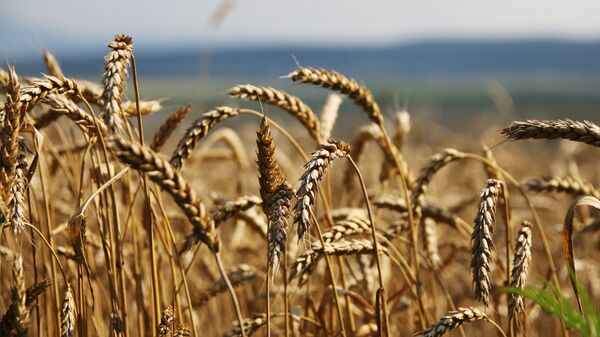"There is now evidence that improving the efficiency of photosynthesis by genetic modification is one of the promising approaches to achieve higher wheat yield potential," said professor Christine Raines, head of the school of biological sciences at the University of Essex.
Scientists have attempted to achieve greater crop yields via genetic modification for decades, but until now there has been no proof that GM wheat would produce more product than natural varieties. In greenhouse conditions, the new variant produced up to 40 percent more, a remarkable enough breakthrough, but out in the open will likely produce considerably less than that figure.
"These field trials are the only way to assess the viability of a solution that can bring economic benefits to the farmers, returns to the UK tax payer of the long-term investment in this research, benefits to the UK economy as a whole and the environment in general," said Dr. Malcolm Hawkesford, head of the plant biology and crop science department at Rothamsted Research.
"I believe that there is less opposition to GM," Raines told reporters. "I would like to think that it is to do with the fact there has been a great effort made by plant scientists to explain more fully and clearly the potential of GM plants to improve our future."
According to some projections, the global population will increase some 70 percent by the year 2050, leading to fears that food production will not be able to meet demand, especially as many claim that natural wheat productivity on the Earth has reached its limit. However, many doubt those numbers, observing that today's food production exceeds the demand for generations to come, and hunger exists because of a distribution problem, as transporting food to those who need it most is not viewed as a profitable exercise in the globalized, capitalist society of the West.
"World food production already far exceeds the needs of generations to come but people still go hungry. Techno-fixes like GM wheat won't change that because they don't address the real problems," says Liz O'Neill, director of GM Freeze.
"GM is a bogus solution sucking up funding that could make a real difference if it was spent on waste reduction and poverty eradication," she stated.
"GM wheat has been available in the US for over 15 years but never commercialized because of strong opposition in the marketplace, from the people who buy wheat, particularly for bread. We think this work on GM wheat is completely irrelevant to actual farmers," says Peter Melchett, policy director at the Soil Association.
"We know there is no demand for GM wheat — even in the US, and certainly not in Europe or the UK," he said.
The UK Department for the Environment has confirmed that it received the application and will respond within the 90-day time limit.




